Podcast: “Not Born Yesterday: The World’s Ageing Population”
Excellent podcast from The Economist about the world’s ageing population and declining fertility rate (which you can listen to at the links below). Its highlights are:
*The world’s population is set to decline for the first time in over 670 years.
*The world’s fertility rate has declined so much that very soon, there will not be enough births to replace the deceased.
*The declining population means that the existing population is also increasingly skewed towards older people. This will have macro-economic effects:
-there will be fewer working age people
-fewer working age people = fewer people to contribute to societal productivity, which in turn will slow down economic growth
-the workforce needs a combination of the “fluid intelligence” of young workers (their ability to think outside of the box and come up with new innovative and efficient ways of working) and the steady efficiency of older workers who provide stability and experience to deal with problems.
*The decreasing fertility is not just in Europe and North America. The population of African countries is also decreasing.
https://player.fm/series/the-economist-podcasts/not-born-yesterday-the-worlds-ageing-population
All the Key Data About #Africa
This is an excellent info-graphic compiled by the Africa in Data project and Max Roser of Oxford University. See below for images showing all the key development, social, political, and economic changes in Africa during the last 30 years.
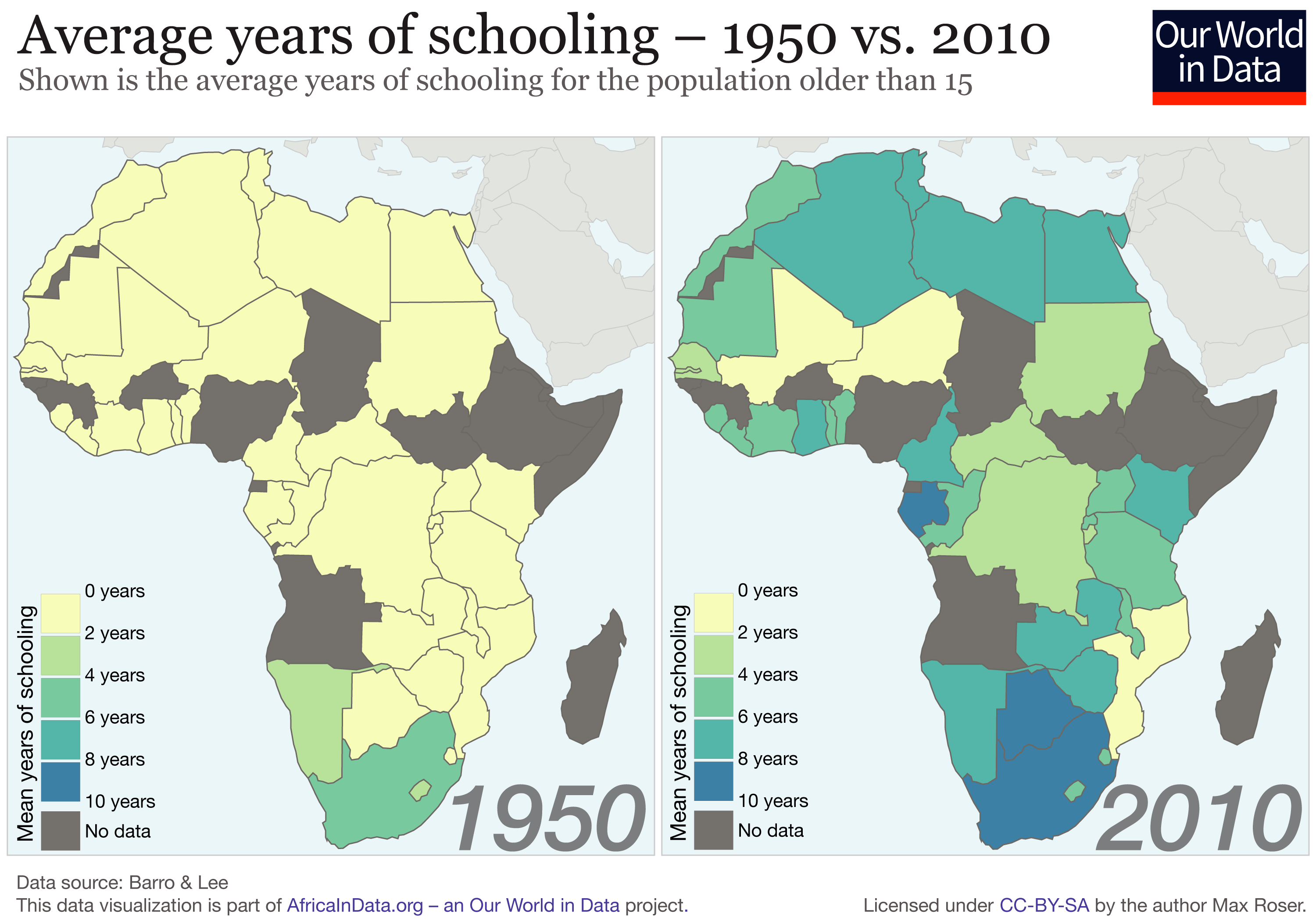
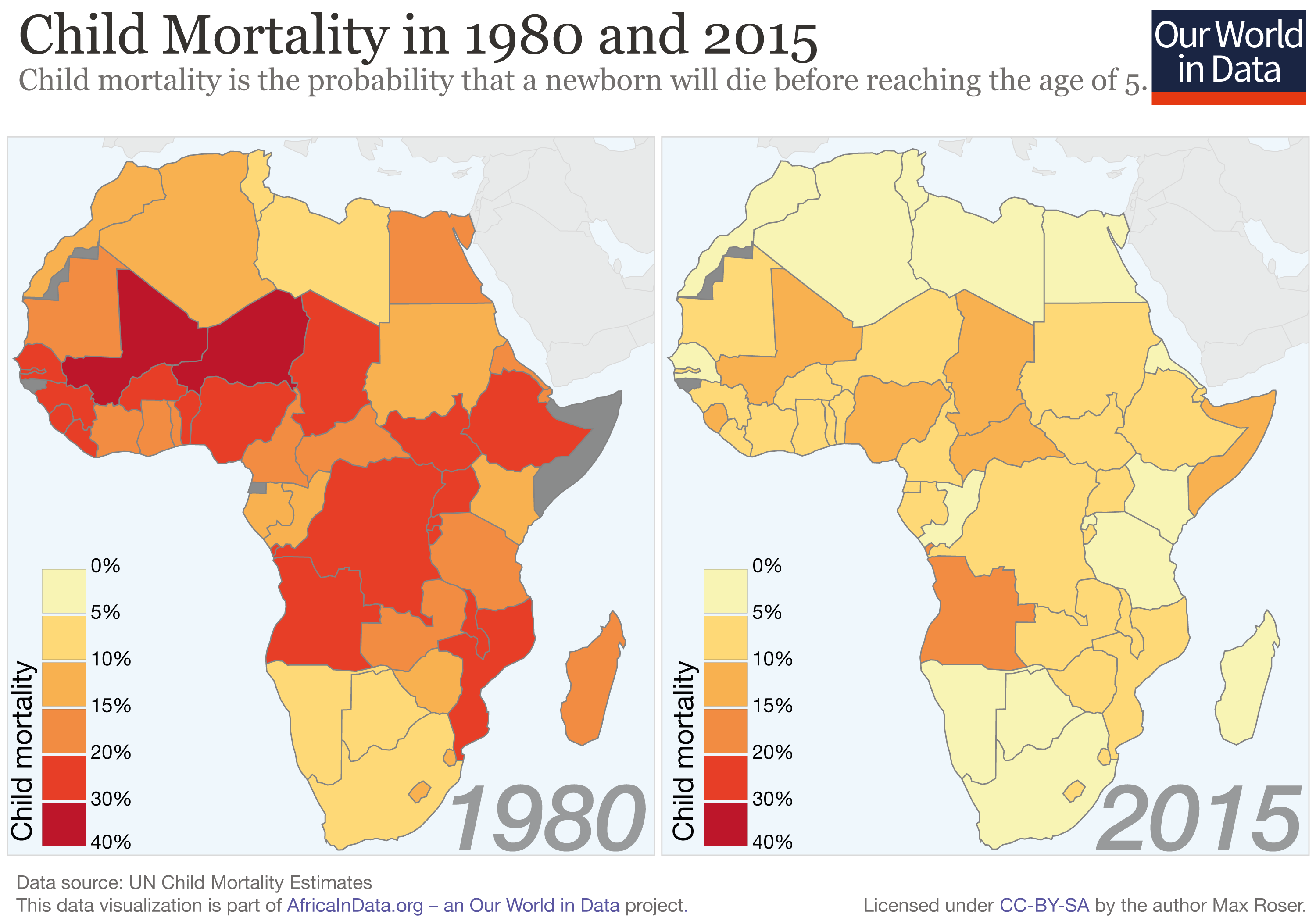
.png)



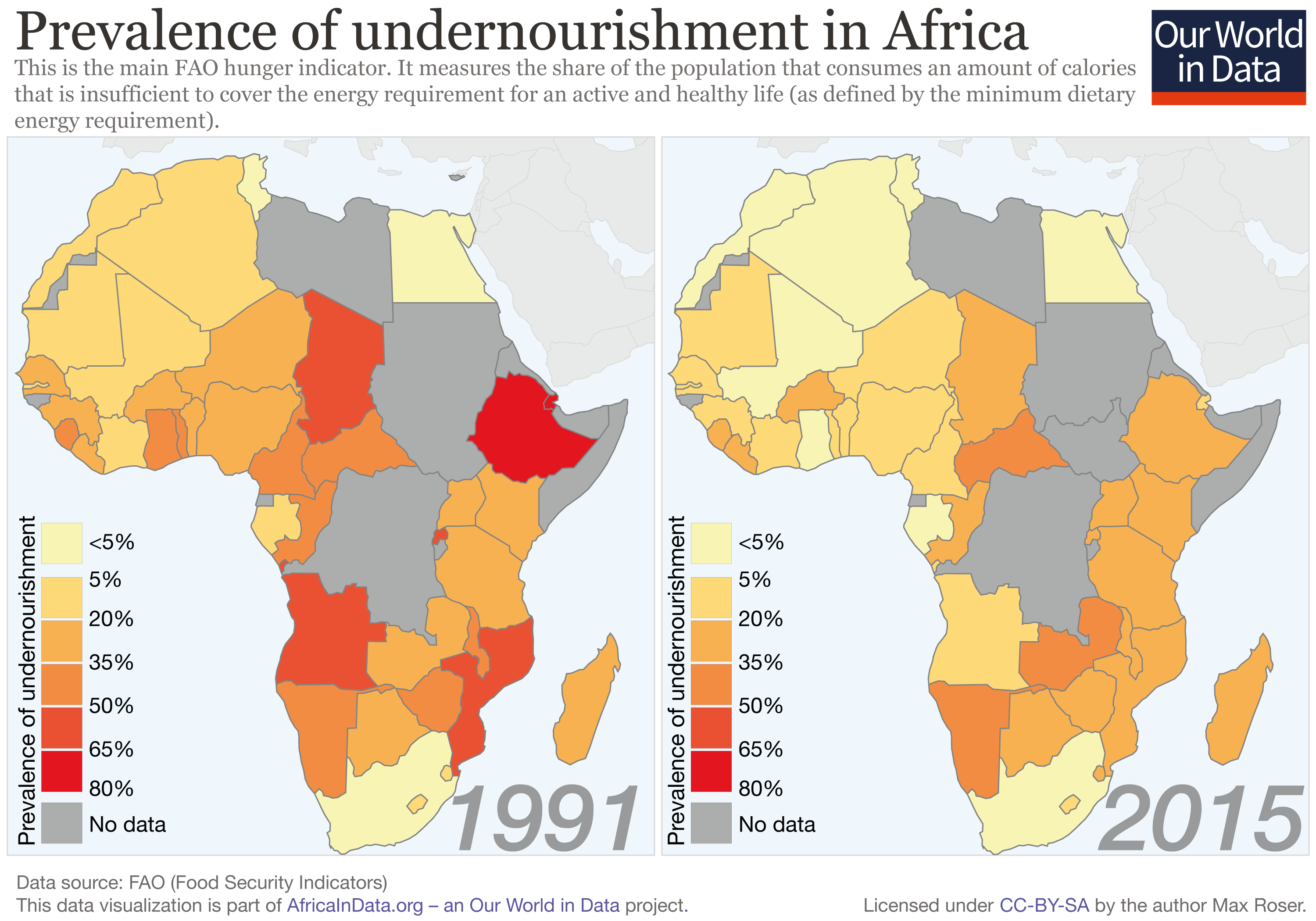

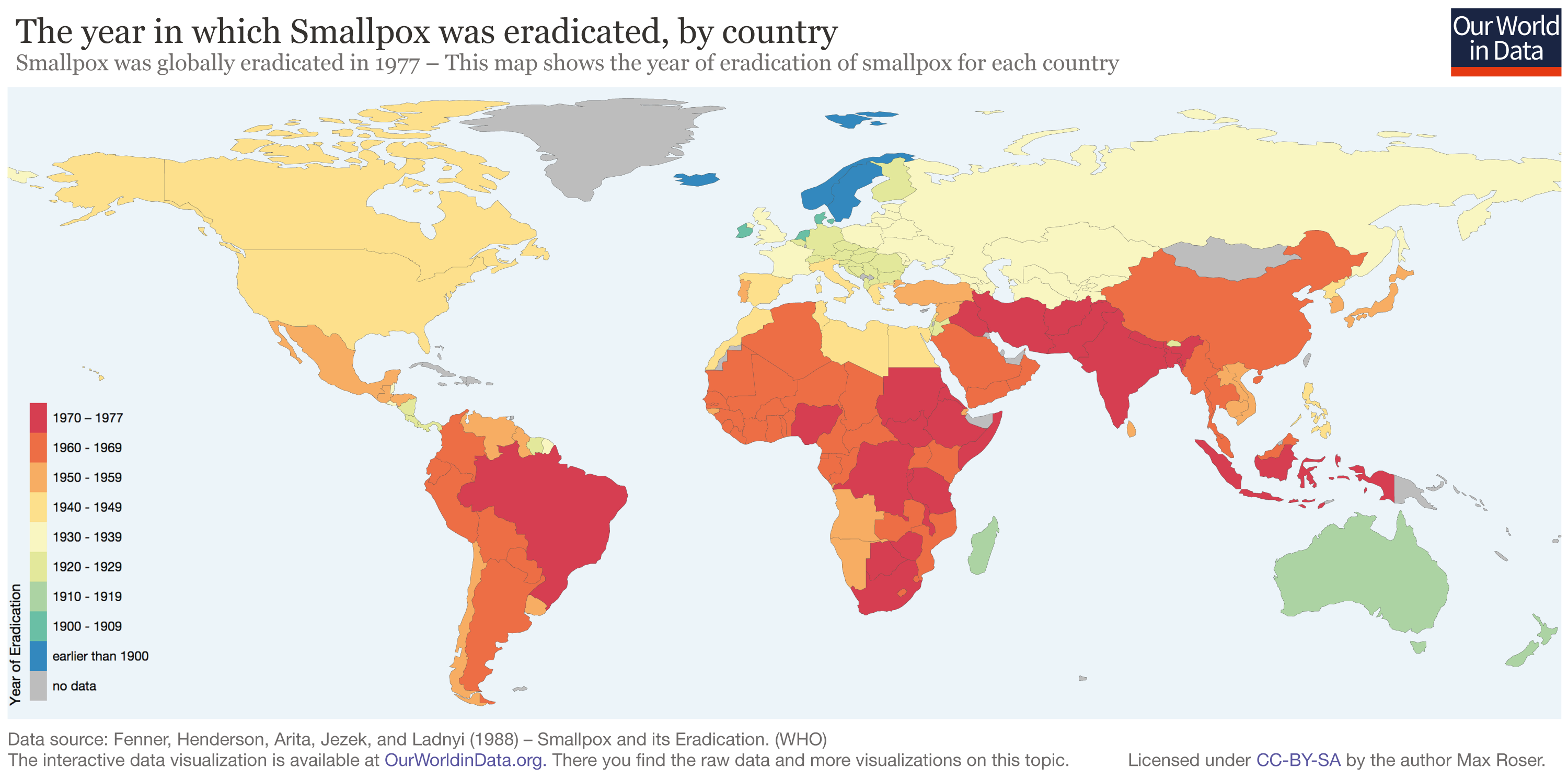
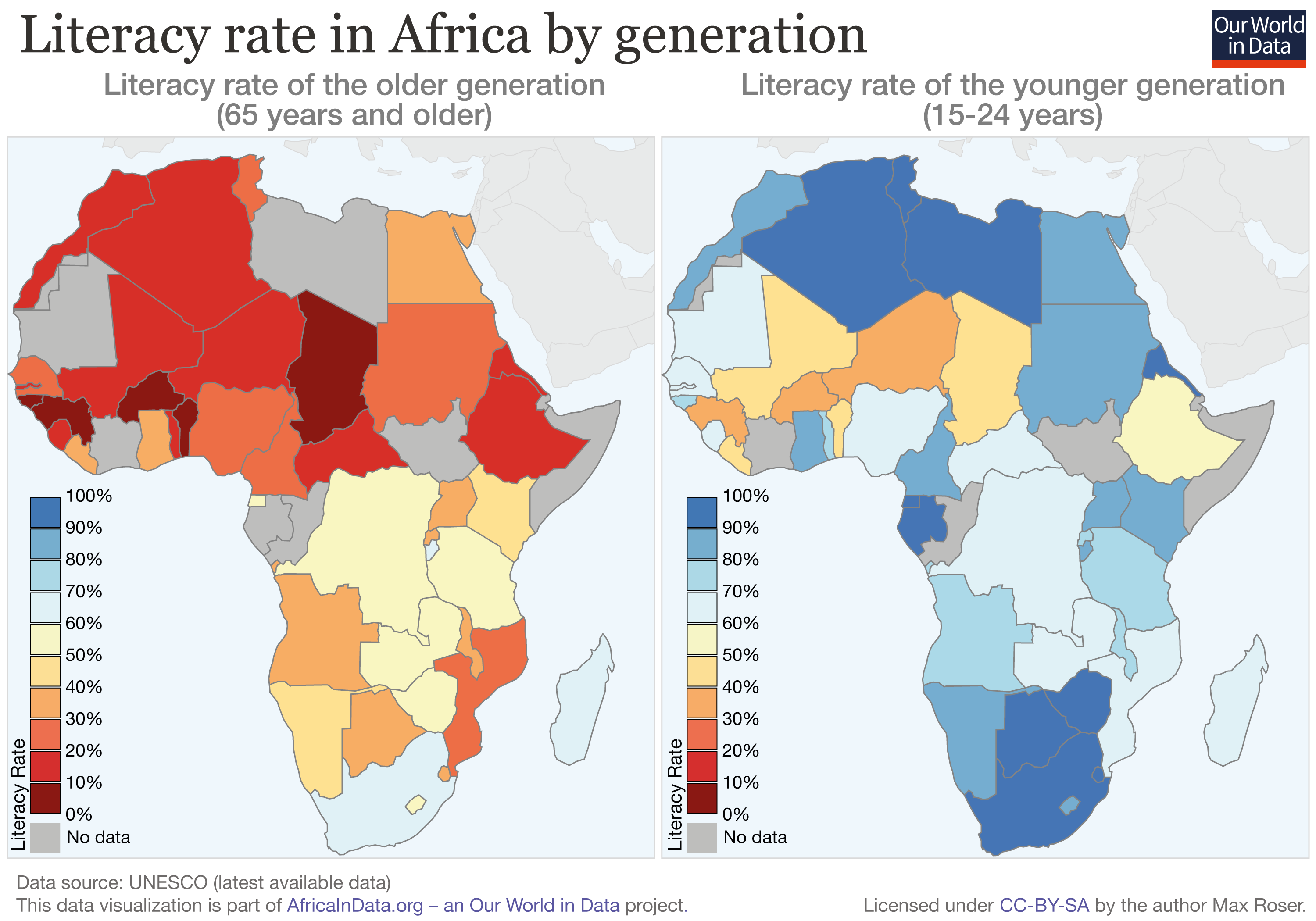
Reasons To Be Optimistic About #Africa’s Future
This is a recent article in the Financial Times about African development. It makes a point that I often do as well: that development in Africa has to be measured on a long-term evolutionary (not short-term revolutionary) basis. It took Europe and North America centuries to become the advanced economies they are today, so it is unrealistic to expect African countries to do it in only a few years.
https://www.ft.com/content/196a39e2-89dd-11e8-b18d-0181731a0340
Opinion African economy
Reasons to be optimistic about Africa’s future
Important changes are taking place in the region that confound the ‘destiny instinct’David Pilling
Lagos, Nigeria: Statistician Hans Rosling saw the locus of world trade shifting from the Atlantic and the Pacific to the Indian Ocean as first Asia and then Africa escaped from poverty © BloombergIn the early 1980s, Hans Rosling, the late great Swedish physician and statistician, worked as a district medical officer in Nacala, a remote part of northern Mozambique. Three decades later he returned to see what had changed.
He was amazed. Where first-time visitors saw only poverty and lack of development, Rosling noticed improvements everywhere. In the hospital, he saw that the wards had lightbulbs and that the nurses had glasses and could read and write.
For him it was evidence that — barring a catastrophic setback — Mozambique was on a path that would eventually lead its people out of poverty and towards dignity and prosperity. Rosling fought against what he called the “destiny instinct”. This was, in his words, “the idea that innate characteristics determine the destinies of people, countries, religions or cultures”.
At its worst, the destiny instinct is a form of racism, attributing certain qualities to certain races. Saying Africans are inherently corrupt or inherently “tribal” comes under this category. Even in its less egregious form, the destiny instinct is a sort of fatalism. This would have it that because of a country’s historic or cultural trajectory it is doomed to be stuck that way forever.
Quite rightly, Rosling had no time for such ideas. After all, half a century ago, people were saying much the same thing about Asia. It was commonly thought that the likes of Malaysia, South Korea, China and India were culturally and institutionally incapable of ever catching up. That proved nonsense.
In Nacala, Rosling saw important signs Mozambique could make it too. The country had been torn apart by war in the run-up to independence in 1975 and for nearly two decades afterwards. As a result, some indicators do not look good. With a nominal gross domestic product per capita in 2017 of $429, it is one of the poorest economies on earth.
Yet since 2000, life expectancy has risen more than 10 years to 61. Child mortality has fallen dramatically from 176 per 1,000 to 71. That is still high. It compares with 49 in Kenya, 7 in the US and 2.7 in Japan. But the direction of travel is clear. As he pointed out, all 50 countries in sub-Saharan Africa have brought down child mortality faster than his native Sweden ever did.
In Factfulness, a book he co-wrote with his son and daughter-in-law, Rosling wrote about the importance of monitoring steady progress: “Keep track of gradual improvements. A small change every year can translate to a huge change over decades.”
Ola Rosling, his son, says our inability to log incremental change is what prevented people from understanding the emergence of China. Few people noticed the enormous progress China was making in the 1980s and 1990s — and even, in terms of literacy and basic health, under Mao Zedong from the 1950s. They saw China’s emergence around the turn of the century as coming from nowhere. In reality, it had been decades in the unglamorous making.
Take schools in Africa. Across the continent, governments have put greater effort into basic education. From 1990 to 2012, primary school enrolment more than doubled to nearly 150m, according to a 2015 Unesco report.
I put it to Ola Rosling that, still, one had to be realistic. Teachers were often absent or illiterate and in many schools very little in the way of meaningful teaching went on. Mr Rosling said I was missing the point. The children were in school and not in the fields. The precedent of education had been set. Some children would learn to read and teachers would get better.
“You have to realise that development takes 100 years. You want it to happen in 10,” he said.
Are the Roslings being naive? Perhaps Africa really does have fundamental problems that make it difficult to emulate Asia’s miracle. Maybe its brutal colonial experience has left its states too fragile to foster development.
Perhaps robots mean it has missed out on the manufacturing age that enabled Asian countries to transform their economies. Perhaps the expected explosion of Africa’s population — from 1bn today to 4bn by the end of the century — will overwhelm the incremental gains highlighted by the Roslings.
Some of these doubts smack of the destiny instinct. True naïveté may be believing that things stay the same — or failing to notice the important changes that are already taking place.
Rosling Snr saw the locus of world trade shifting from the Atlantic and the Pacific to the Indian Ocean as first Asia and then Africa escaped from poverty. His top investment tip — made only half-jokingly — was beachfront property in Somalia.
At least it was a view based on facts, and not prejudice.
david.pilling@ft.com
@davidpilling
Internally Generated Revenue of #Nigerian States
The dependency of Nigerian states on remittances from the federal government is well known. However these stats are a useful (and worrying) guide to each state’s internally generated revenue (IGR).
The states with the highest IGR in Nigeria are:
2. Rivers
3. Ogun
4. Delta
5. Kano
6. Akwa Ibom
7. Edo
8. Oyo
9. Kwara
10. Kaduna
You can read the full report from the National Bureau of Statistics here:
Internally_Generated_Revenue_At_State_Level_-_2016-min
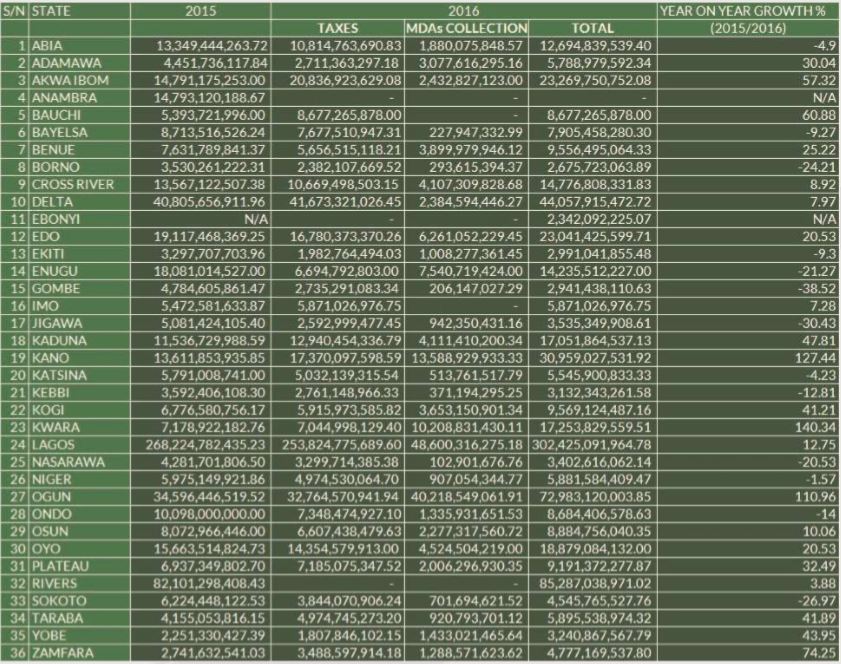
The Role of Western Countries in African Corruption
This is an article I wrote in Foreign Policy about the role that Western countries play in African corruption.
Excerpts:
It’s no secret that corruption is a problem in Africa. Some $50 billion in illicit finance flows out of the continent every year, according to the United Nations. In the first 40 years of independence alone, Nigeria’s leaders stole or
squandered an estimated $400 billion. But as the barbed comments from Buhari imply, these leaders had accomplices in the West. Britain and other developed countries are not the cause of Africa’s corruption, but they are certainly an impediment to its eradication.
African governments are fighting a battle on two fronts. Even when they successfully prosecute corruption at home, they often have to restart litigation in foreign countries to have any hope of accessing the stolen funds. In other words, they must litigate every crime twice: domestically to secure a conviction, and abroad to recover the money. This all but ensures that the stolen funds won’t be repatriated in full, since foreign lawyers typically collect a percentage of the money they recover. For African governments, illicit financial flows are lose-lose. But for Western firms, they’re win-win: There are profits to be made whether or not the money is eventually recovered and returned.
https://twitter.com/maxsiollun
Emir Sanusi: Northern #Nigeria Needs Economic “Marshall Plan”
Interview with the new Emir of Kano Muhammed Sanusi II (AKA Sanusi Lamido Sanusi) about the Boko Haram insurgency in northern Nigeria.
Key points made by Sanusi:
- Islam “preaches education for all adherents”.
- Marrying young Muslim girls off at a young age is actually a cultural (not Islamic) practice “that is not consistent with the teachings of the (Muslim) religion)”.
- Poverty level in northern Nigeria provides a fertile breeding ground for militancy. Says the same thing happened in the Niger Delta.
- Boko Haram insurgency must be tackled via an economic “Marshall Plan” for northern Nigeria.
- Says insurgency calmed down in Kano because of investment in infrastructure there.
- “As long as people are gainfully employed they are not likely to jump into the bandwagon of insurgency”.
Jumia – Nigeria’s Online Shopping Answer to Amazon
http://www.bbc.co.uk/news/business-24483600
Report on the growing online shopping sector in Nigeria.
Africa’s Economies: Nigeria, South Africa and Zimbabwe
Al-Jazeera report focusing on the economies of three African countries: Nigeria, South Africa and Zimbabwe.
Although Nigeria’s economy is typecast one-dimensionally about oil, Nigeria’s agriculture sector accounts for 40% of GDP. It also spends a whopping one-third of Nigeria’s federal budget on food imports.
http://www.aljazeera.com/programmes/countingthecost/2013/08/201381514574696881.html